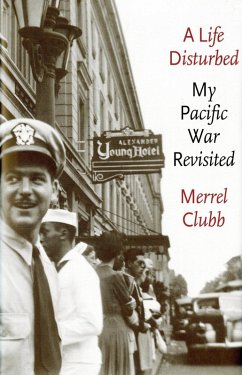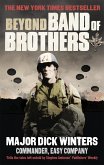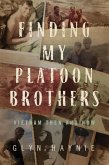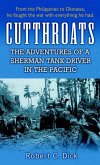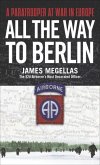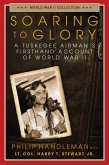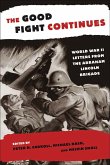An exceptional storyteller with an analytical eye, Merrel Clubb has gathered the letters he sent his parents from the Pacific Theater of World War II and his subsequent reflections on that war and on his life into a kind of then-and-now memoir. The letters are a treasure trove of humor, anxiety, and hope, revealing a young man thrust into a war that he does not understand. Through this exceptional portal on the past, we learn of the tragic absurdity of war, of a soldier trained for naval warfare but sent into land battle with weapons he'd never before fired; of command post latrines at which even commanding officers were sitting ducks; of the ghoulish trophies and mementos that soldiers collected from the battlefields.
The letters describe a vivid cast of characters, from Clubb's childhood friend who instilled a love of poetry in his comrades to the hillbilly singer and the prostitute with whom the young Clubb had varied amorous adventures. But the most compelling figure in this narrative is, of course, Clubb himself, an intellectual who carried Jane Austen and Joseph Conrad along with his tommy gun; who used books as a fortification for his foxhole, discovering upon waking one morning that "Ouspensky stopped a bullet"; and who, in a darkly humorous moment, wrote home that "Plato is pretty consoling, because I can always think that somewhere there is a perfect hell of a navy of which this is but an imitation or representation."
Returning to these letters years later prompts Clubb to look again at the Second World War and at the atomic bomb that ended it. In an analysis as useful to understanding our own historical moment as it is to reconsidering the past, Clubb counters the conventional wisdom shared by veterans and civilians alike, particularly regarding the concept of a "just war."
For Clubb, as for so many veterans, the war does not end with the victory over Japan. Despite the intervening years, Clubb finds that the haunting episodes experienced over half a century ago echo still. Even in the solitude of the forest, in the hunting parties he meets, in the animals he himself kills, he hears again the sound of battle, sees again the faces of the victims of war.
Part letters, part memoir, and part scholarly analysis, this volume ranges over a vast, colorful, and weighted territory. From the battles and respites in the Pacific Islands, to the night clubs and call girls of mainland San Francisco and San Diego; from the relative quiet of his aptly named hometown, Stillwater, to the similarly quiet Montana backcountry, Clubb's narrative explores the psychological terrain of a life disturbed, and forever changed, by war.
The letters describe a vivid cast of characters, from Clubb's childhood friend who instilled a love of poetry in his comrades to the hillbilly singer and the prostitute with whom the young Clubb had varied amorous adventures. But the most compelling figure in this narrative is, of course, Clubb himself, an intellectual who carried Jane Austen and Joseph Conrad along with his tommy gun; who used books as a fortification for his foxhole, discovering upon waking one morning that "Ouspensky stopped a bullet"; and who, in a darkly humorous moment, wrote home that "Plato is pretty consoling, because I can always think that somewhere there is a perfect hell of a navy of which this is but an imitation or representation."
Returning to these letters years later prompts Clubb to look again at the Second World War and at the atomic bomb that ended it. In an analysis as useful to understanding our own historical moment as it is to reconsidering the past, Clubb counters the conventional wisdom shared by veterans and civilians alike, particularly regarding the concept of a "just war."
For Clubb, as for so many veterans, the war does not end with the victory over Japan. Despite the intervening years, Clubb finds that the haunting episodes experienced over half a century ago echo still. Even in the solitude of the forest, in the hunting parties he meets, in the animals he himself kills, he hears again the sound of battle, sees again the faces of the victims of war.
Part letters, part memoir, and part scholarly analysis, this volume ranges over a vast, colorful, and weighted territory. From the battles and respites in the Pacific Islands, to the night clubs and call girls of mainland San Francisco and San Diego; from the relative quiet of his aptly named hometown, Stillwater, to the similarly quiet Montana backcountry, Clubb's narrative explores the psychological terrain of a life disturbed, and forever changed, by war.
Dieser Download kann aus rechtlichen Gründen nur mit Rechnungsadresse in A, D ausgeliefert werden.

